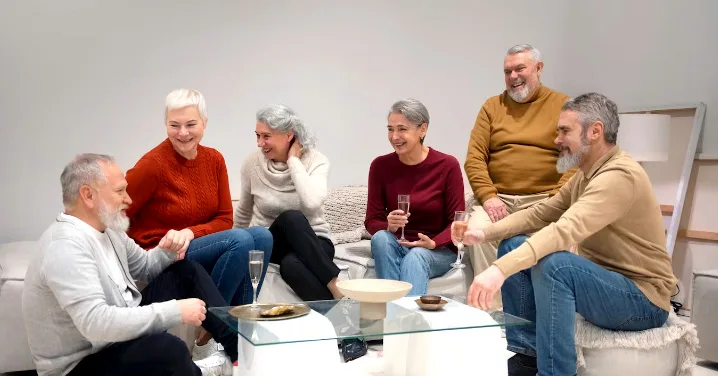
The True Value of Community in Delivering Better Care For Seniors
Seniors need to feel connected to others and have a sense of belonging. A strong community is needed for their physical, mental, and emotional health. This support network enhances their quality of life, improves health outcomes, and reduces feelings of loneliness and isolation.
People can’t discount the true value of community in delivering better care for seniors. Senior living communities offer social activities for residents, and seniors who are aging in place benefit from community programs that allow them to connect with others. These connections may lead to longer and happier lives. How can family members help seniors stay connected?
Social Connections and Health
Research shows that seniors who are isolated and lonely are more at risk of certain health conditions. They may become depressed and anxious or experience cognitive decline and dementia. Loneliness and isolation put them at increased risk of heart disease and high blood pressure, and their mobility and physical health may decline.
Seniors who receive community support and engage in regular social interactions tend to have improved mental health. When participating in group events, individuals typically engage in more exercise and develop a greater sense of purpose and belonging. The support and social interactions often increase their life expectancy while improving their overall health. Seniors need social interactions as much as they do healthy diets and medical exams.
Fostering Community in Senior Living Communities
Senior living communities recognize the importance of social interactions. They typically provide group activities and clubs, such as crafting clubs or art classes. Fitness programs may be an integral part of the community’s daily schedule, and some communities offer volunteer opportunities, allowing seniors to share their knowledge and skills with others. The communities may offer social outings and trips, allowing residents to engage with others outside their social circle.
Individuals aging at home may also find opportunities to socialize and connect with others. They could attend church and make friends there or volunteer in their neighborhood. Local organizations might offer programs for seniors, such as game nights and group outings, to help seniors living at home stay active and connected.
How Family Members Can Help
Family members can help seniors remain connected and receive support. They should connect with the seniors regularly through in-person visits, phone calls, or video chats. These interactions help them maintain familial bonds while combating loneliness. The family should also encourage their loved ones to participate in local programs. They may need to provide transportation to these events. Milestones should be celebrated, and families should make an effort to gather regularly. When families actively encourage seniors to participate in activities and assist them in doing so, their mental and physical health improves.
Eliminating Barriers
Families should also help seniors find ways to eliminate any barriers that prevent them from participating in social activities. These barriers may include transportation issues, mobility concerns, or medical impairments. The family may provide transportation and ensure the activities and events are accessible for the senior. Virtual engagement is an option for those who are unable to attend in person.
Older adults need to be actively engaged in a community for improved physical, mental, and emotional well-being. This community provides them with a sense of belonging while combating loneliness. The family and community can provide this engagement to ensure seniors live full and meaningful lives.
Popular Categories





